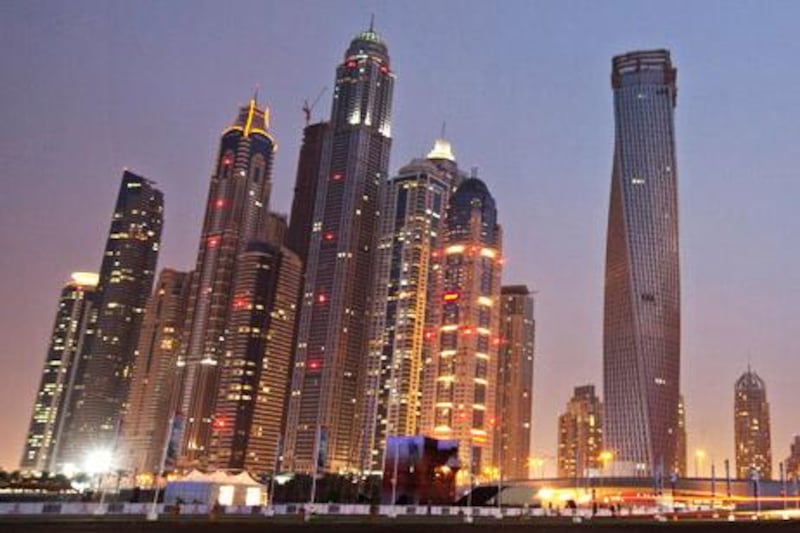DUBAI // Falls in the cost of rent, utilities and clothing reduced the cost of living in Dubai last year.
Despite a widely held belief that rents and household bills have been on the rise, the Inflation and Consumer Price Index 2012 compiled by Dubai Statistics Centre showed inflation at minus 1.71 per cent.
Rents fell by 7.65 per cent, said the report, and were the main contributor to a group reduction of 6.19 per cent in housing, water, electricity, gas and other fuel.
There was also a fall of 0.31 per cent in the cost of materials and services for house maintenance and repair.
However, life is becoming more expensive in other areas, with food and non-alcoholic beverages increasing in price by 3.24 per cent.
The price of meat rose by 4.93 per cent, fish and seafood 5.84 per cent and tea and coffee by 4.57 per cent.
Consumers were also paying more for alcoholic drinks and tobacco, which both increased by 3 per cent.
The cost of education, furnishings and health care also went up. Pre-primary and primary education rose by 2.59 per cent and secondary by 2.22 per cent.
There were also slight increases in the cost of medical care and drugs of 0.2 per cent and 0.26 per cent respectively.
The cost of furnishing and maintaining an apartment rose by 1.3 per cent, there was a 5.8 per cent rise in the cost of small household electricals, and glass and tableware were up by 4.54 per cent.
The cost of running and maintaining a vehicle went up by 1.34 per cent, cars cost 4.29 per cent more and motorcycles 11.13 per cent. Air travel also rose by just over 4 per cent.
It did became a little less expensive to go to restaurants and cafes with a 0.28 fall in prices, the report said.
The cost of clothing and footwear as a group fell 1.32 per cent, led by a drop in garment prices of 2.88 per cent and in clothing material prices of 1.05 per cent.
Consumers say they are struggling to feel a drop in living costs, despite the official figures.
"I do feel it's getting more expensive here and it looks like it will continue to do so," said Amanda Friars, from the UK.
"I think the years of low rent are over now anyway so this year I'm expecting to pay more for that, as well as the usual price increases in food and drink that seem to happen every year."
"It just seems as though I'm always paying more and more every time I go out," said Saeed Khan, from the UK.
"The figures might show a slight decrease in inflation for clothes but then it doesn't really balance out because of the increases elsewhere.
"I never feel as though my bills are getting cheaper, for example."
For others it is more important than ever to hunt for bargains.
"I try to shop as smart as possible," said Iftikhar Hussain, from Pakistan.
"A lot of times you can get things much cheaper in Deira and Bur Dubai than the big malls but it's not as convenient and you have to do a lot of shopping around, which I don't think many people are prepared to do.
"But on the whole I don't think Dubai is a cheap place to live.
"On the other hand if you are looking for discounts and bargains, they are out there. You just need to be smart about it and take advantage of sales and offers."






